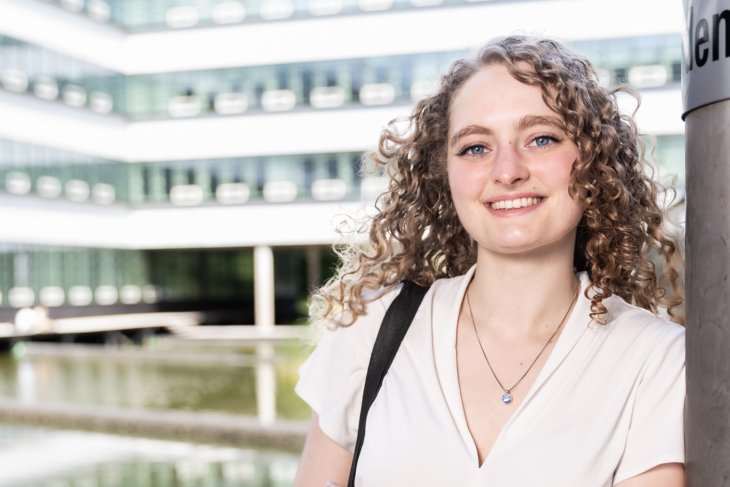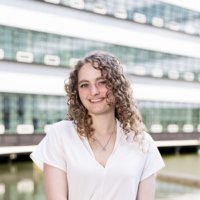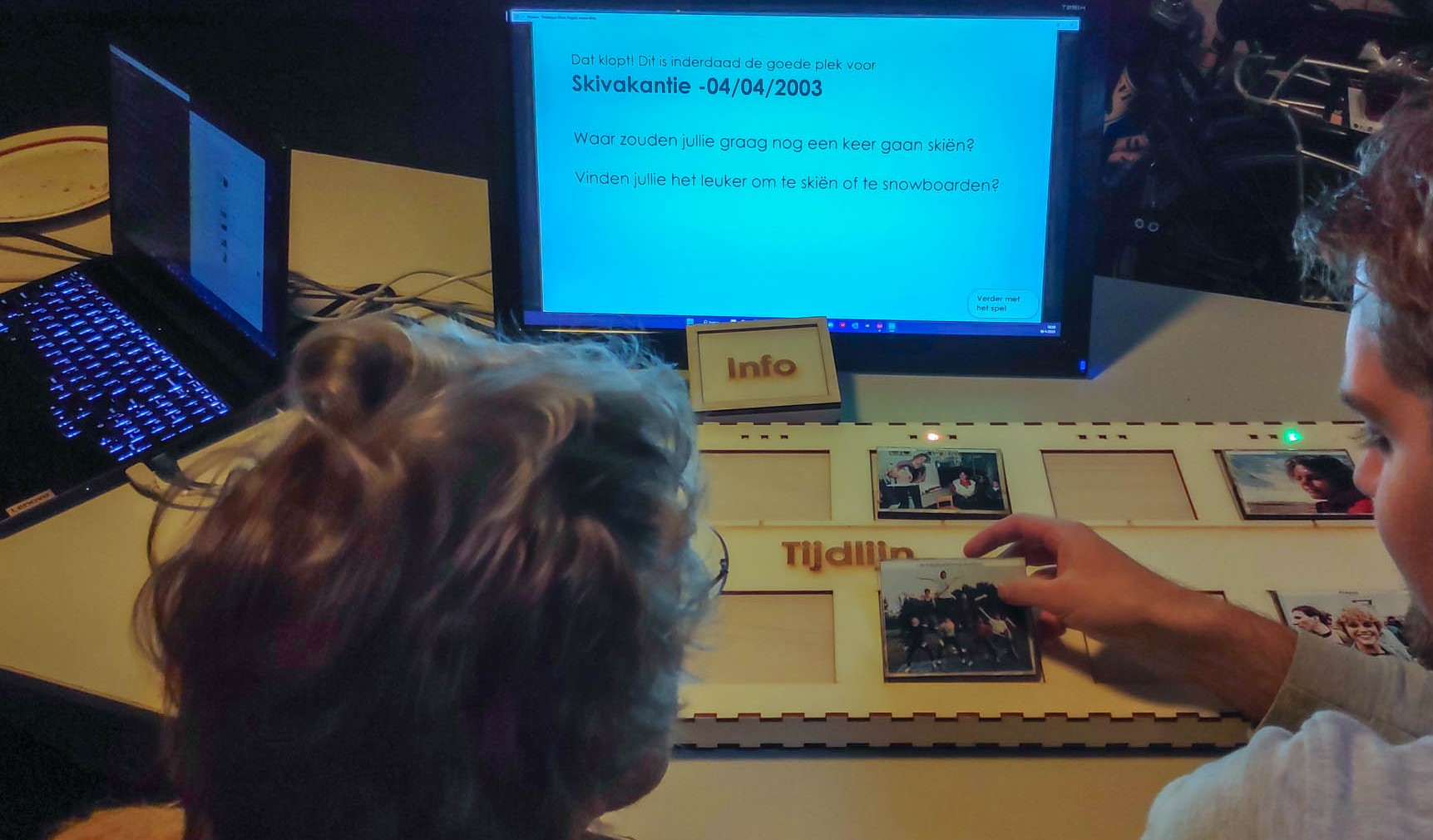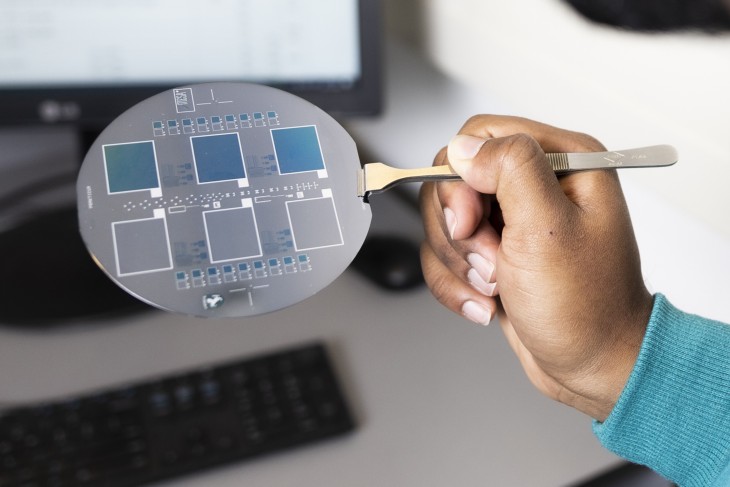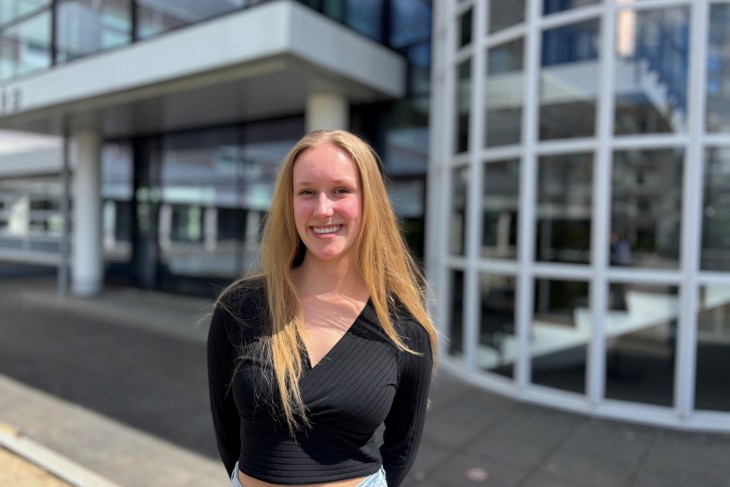"When I chose the Master’s in Interaction Technology (I-Tech), I wasn’t thinking about how it would look on my CV or the specific career path it would lead to. I wanted to improve people’s lives by creating meaningful technologies.
Nowadays, we use technology in so many ways, every single day: think about your phone, laptop, or even public transport. Take the public transport chip card (OV-chipkaart in Dutch), for example. You need to scan the card to open the gates and enter. This seemingly simple task is challenging for some people, especially the elderly. I want to understand why it's difficult for them and find ways to help. Could we provide clearer information on how it works or design the physical things better?
This is the essence of I-Tech: shaping the interaction between people and (IT-based) technology so that individuals can benefit from it.
Designing a game for patients with Alzheimer's
One project that stood out to me was designing an interactive timeline game for people in the early stages of Alzheimer’s. Together with two other students, we worked with the target group and gathered events from their past, then we incorporated those memories into a game where they would arrange them in chronological order.
We designed a physical prototype of the game using laser cutting and LEDs to make it visually engaging and conducted extensive user testing to refine the design. Additionally, we published a research paper based on our work, so there was a big research component to the project, too. I felt that what we had created made a significant impact—it offered cognitive support for the patients and assistance for the caregivers in their work.
Freedom and challenges
I-Tech isn't your typical degree: there is only one mandatory course besides your graduation project, and the rest is up to you. It's liberating to explore diverse areas and find what you enjoy most, even though it might seem stressful at first. There were so many courses in various disciplines I could choose from, such as computer science, industrial design engineering, electrical engineering, design, and psychology, that I found myself asking: what am I interested in?
Having completed my Bachelor's in Creative Technology, I already had a solid foundation in designing innovative tech solutions. Then I realised there was something more to explore: the human aspect of technology. Who are you designing this technology for? How can you ensure it meets their wishes and needs? Through user testing and interviews, I learned to include the user in the creation of interactive technologies that are meaningful to them.
Beyond studying
I've been actively involved in the university community, particularly with the study association Proto, where I served as a secretary for a year. Additionally, I’ve contributed to the faculty council and the programme committee of I-Tech. Being awarded “The Most Active Student of the Year” in 2022 was the cherry on top.
It’s amazing that you have the freedom to engage in such activities alongside your studies because you build a network, gain new skills—and have fun! Moreover, that allowed me to learn a lot about the university's operations, beyond what a typical study programme offers. It was exciting to get a behind-the-scenes look at how decisions are made at the university and to collaborate with other associations and university staff.
Designing a chatbot in the thesis
I'm now working on my master’s thesis project in which I am designing a chatbot to assist family members of individuals with hereditary heart disease. Given the high chance that these family members might also have the disease, the chatbot plays a crucial role in their decision-making. It makes medical information accessible and understandable, offering personalised guidance to help them decide whether to seek genetic counselling or undergo genetic testing. Some people, for example, don’t want to know they have such a disease, so the chatbot gives them enough information before they make a decision.
I don’t know which direction I am going to take once I graduate, perhaps making an impact in the medical field. One thing is for sure—I want to continue creating technology to support and enrich people's lives."
